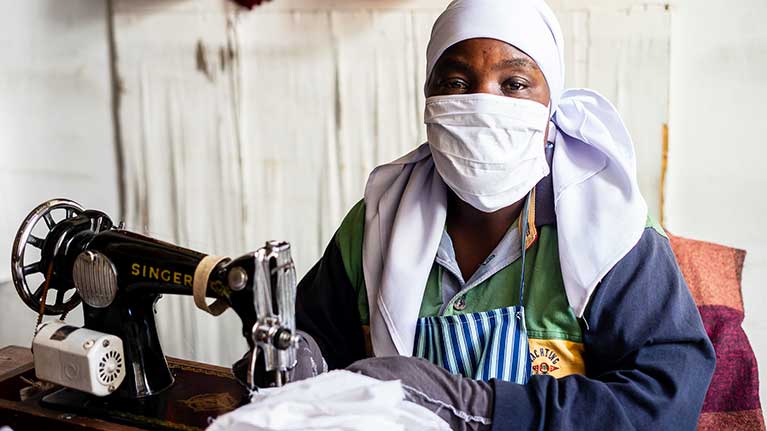Rights at work
Fundamental rights at work can help build back better from COVID-19
Core work-related rights and principles can play a vital role in recovery from the COVID-19 crisis and help build back a better, more equitable, world of work, according to a new ILO paper.

However, the issue paper also warns that the crisis has placed these same freedoms and rights at work at greater risk, as countries face increases in poverty, inequality and vulnerability.
The Issue paper on COVID-19 and fundamental principles and rights at work provides a comprehensive overview of the impact of the COVID-19 pandemic on child labour, forced labour, discrimination, freedom of association and collective bargaining. It details how a downward spiral into informality, poverty and exploitation can be reversed to build back better and to leave no one. It cautions that the urgent need for an integrated response to the pandemic has not yet been met.
The paper, published by the FUNDAMENTALS branch of the ILO, addresses all four fundamental principles and rights at work – forced labour, child labour, discrimination, freedom of association and collective bargaining – and highlights the importance of mainstreaming them into COVID-19 responses, to ensure such responses are inclusive.
The issue paper finds that limits on freedom of movement and public gatherings, brought in as part of some national pandemic responses, is making “the realization of rights to freedom of association and collective bargaining more difficult, both in law and practice, which in turn hampers the development of responses to the crisis rooted in social consensus”. In particular, the paper says, this affects the two billion people working in the informal economy who often lack a collective and representative voice.
Recent initiatives to identify and address child labour and forced labour in global supply chains are also now in jeopardy, “as businesses at all levels struggle to cope with the crisis and the severe demand shocks associated with it”.
Protecting people’s lives must be our priority... Protecting livelihoods helps us do this."
Francesco d’Ovidio, Officer in Charge, FUNDAMENTALS branch
Access to quality education is also crucial for preventing child labour. 1.5 billion children have been affected by school closures this year. A third of these children have no access to remote learning, many relied on free school meals and cash transfers conditional on school attendance.
The issue paper also highlights concern that, in some countries, support for forced labour victims and survivors is being rechannelled towards the pandemic response.
The COVID-19 crisis has also exposed discrimination against different groups of workers and the entrenched gender inequalities in labour markets and in unpaid care work.
The paper proposes a four-pillar policy framework for the response to COVID-19, based on international labour standards. These cover stimulating the economy and employment; supporting enterprises, jobs and incomes; protecting workers in the workplace; and relying on social dialogue for solutions.
“Protecting people’s lives must be our priority,” said Francesco d’Ovidio, Officer in Charge, FUNDAMENTALS branch. “Protecting livelihoods helps us do this. The particular strength of these fundamental principles is their inter-related and mutually-reinforcing nature. Basing our policies around them paves the way for a recovery that is socially and economically inclusive, and ensures that the needs of the most vulnerable are taken into account.”